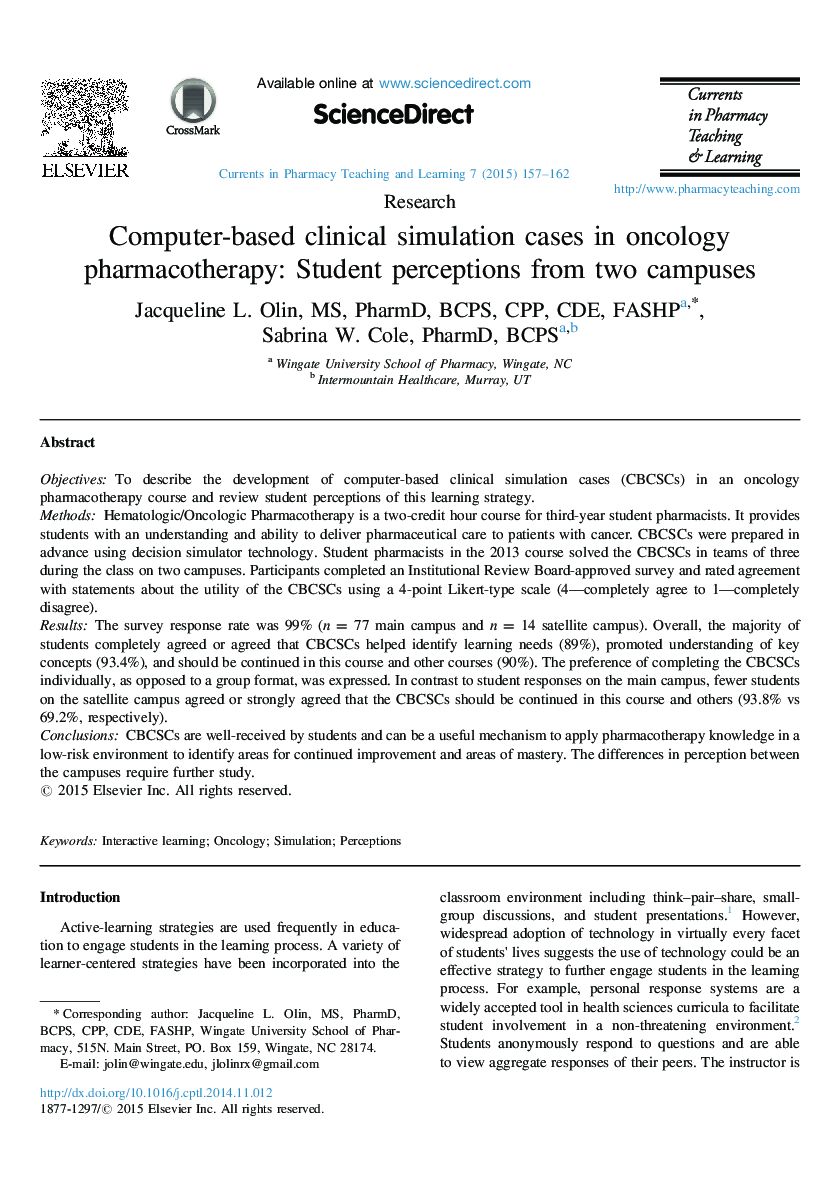| Article ID | Journal | Published Year | Pages | File Type |
|---|---|---|---|---|
| 353296 | Currents in Pharmacy Teaching and Learning | 2015 | 6 Pages |
ObjectivesTo describe the development of computer-based clinical simulation cases (CBCSCs) in an oncology pharmacotherapy course and review student perceptions of this learning strategy.MethodsHematologic/Oncologic Pharmacotherapy is a two-credit hour course for third-year student pharmacists. It provides students with an understanding and ability to deliver pharmaceutical care to patients with cancer. CBCSCs were prepared in advance using decision simulator technology. Student pharmacists in the 2013 course solved the CBCSCs in teams of three during the class on two campuses. Participants completed an Institutional Review Board-approved survey and rated agreement with statements about the utility of the CBCSCs using a 4-point Likert-type scale (4—completely agree to 1—completely disagree).ResultsThe survey response rate was 99% (n = 77 main campus and n = 14 satellite campus). Overall, the majority of students completely agreed or agreed that CBCSCs helped identify learning needs (89%), promoted understanding of key concepts (93.4%), and should be continued in this course and other courses (90%). The preference of completing the CBCSCs individually, as opposed to a group format, was expressed. In contrast to student responses on the main campus, fewer students on the satellite campus agreed or strongly agreed that the CBCSCs should be continued in this course and others (93.8% vs 69.2%, respectively).ConclusionsCBCSCs are well-received by students and can be a useful mechanism to apply pharmacotherapy knowledge in a low-risk environment to identify areas for continued improvement and areas of mastery. The differences in perception between the campuses require further study.
